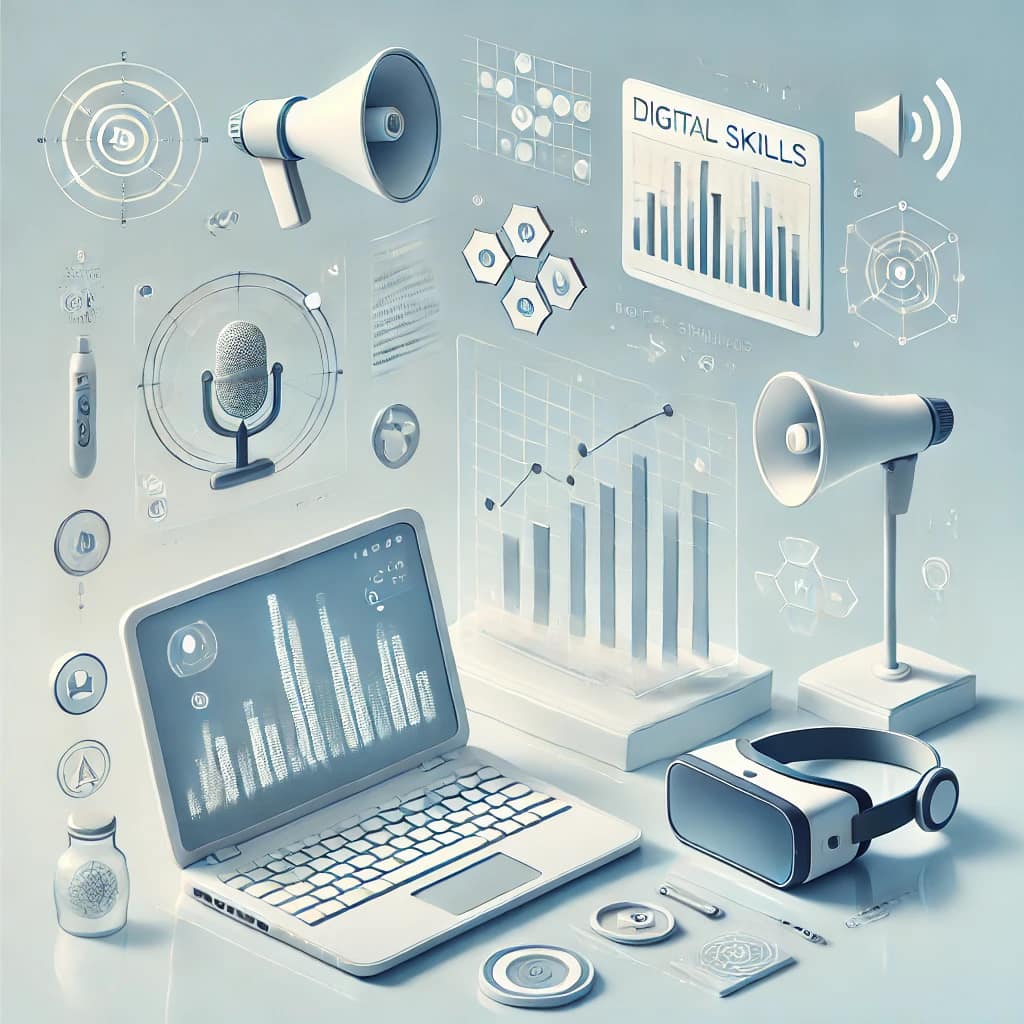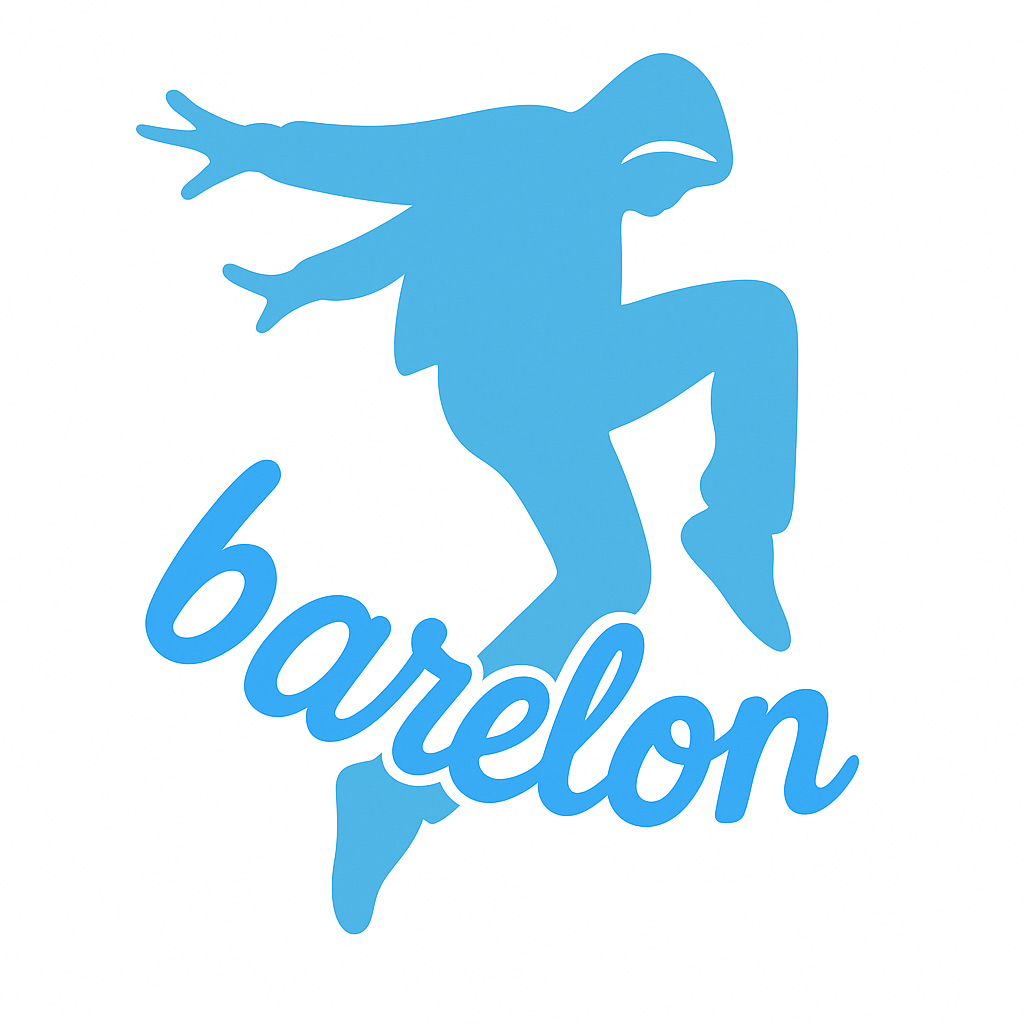
Top Digital Skills for Future Careers
The digital age is reshaping careers, blending creativity with technology and making tech skills indispensable across industries. Whether you’re in healthcare, finance, the arts, or entertainment, being digitally skilled isn’t optional anymore—it’s the golden ticket to career success. Let’s explore the hottest digital skills transforming the job market and see how you can harness them to stay ahead.
Master Creative Computing
Coding and Software Development
Coding isn’t just for tech wizards—it’s the language powering innovation. Python, JavaScript, and similar tools let you build apps, create websites, and even craft game-changing tech solutions. For example, coding allows you to design your own game or launch a unique app to solve everyday problems.
Software development stretches beyond tech companies. Financial firms, movie studios, and even non-profits rely on developers to innovate and streamline processes. Think of it as a superpower: solving real-world challenges with tech tools.
Take the plunge into coding with resources like Codecademy or free tutorials on YouTube. Begin with a small project, like automating a task or building a basic website. Each step sharpens your problem-solving skills, boosts your confidence, and opens pathways to roles like full-stack developer, app creator, or entrepreneur.
Harness Data Power
Data Science & Analytics
Every click, like, or swipe generates data, and data-savvy professionals turn this raw information into actionable insights. Whether predicting stock trends or analyzing customer habits, data science is the compass guiding modern businesses.
For example, tools like Python, SQL, and Tableau help you extract patterns from massive datasets. Machine learning takes it further, enabling predictions like anticipating market demands or forecasting weather.
Industries such as healthcare, gaming, and even sports crave data experts to optimize strategies and create cutting-edge solutions. Start with courses on platforms like Coursera or dive into hands-on projects—analyzing sales data or visualizing trends on a graph. These skills will position you as a key decision-maker across multiple sectors.
Dominate Visual Communication
Digital Marketing & Design
Want to stand out in a crowded digital world? Digital marketing and design are your creative tools to shine. Whether it’s writing a viral tweet or designing an Instagram ad that stops thumbs mid-scroll, these skills combine strategy with artistry.
Learn SEO (Search Engine Optimization) to boost website rankings or SEM (Search Engine Marketing) to drive traffic with precision ads. Tools like Google Analytics reveal audience behavior, while Adobe Creative Suite or Canva lets you design stunning visuals without breaking a sweat.
For instance, crafting a dynamic portfolio with your design work or managing a small business’s social media could show off your marketing chops. These skills are the building blocks of careers in branding, advertising, and digital content creation, offering both flexibility and innovation.
Explore Virtual Realities
VR and AR Development
Virtual Reality (VR) and Augmented Reality (AR) aren’t just futuristic buzzwords—they’re the present and future of immersive tech. From creating lifelike training simulations for surgeons to designing virtual property tours, the possibilities are endless.
Imagine creating an AR app that lets people visualize furniture in their homes before they buy it or designing VR experiences that help students explore historical landmarks without leaving their classrooms.
To dive into this field, start with tools like Unity or Unreal Engine, which are accessible to beginners and professionals alike. Whether you want to code immersive games, design intuitive AR interfaces, or craft innovative simulations, the demand for VR and AR specialists is soaring.
Your Digital Skillset, Your Future
The future of work is digital, dynamic, and packed with opportunities. Whether you dream of coding the next big app, analyzing data to transform industries, designing creative marketing campaigns, or building immersive experiences, investing in digital skills is your key to unlocking a limitless career landscape.
Take the first step today—watch a tutorial, build a project, or enroll in a course. Your future self will thank you for it.
Online resources
A curated list of online resources to help you build the top digital skills for future careers:
1. Coding and Software Development
- freeCodeCamp: Offers free interactive tutorials on web development, Python, JavaScript, and more.
- Codecademy: Beginner-friendly platform covering coding basics to advanced topics like machine learning.
- The Odin Project: Comprehensive curriculum for web development and programming.
- GitHub: Perfect for exploring open-source projects and building a portfolio.
- LeetCode: Ideal for practicing coding challenges and preparing for technical interviews.
2. Data Science & Analytics
- Kaggle: A community-driven platform with free datasets, coding challenges, and courses on data science and machine learning.
- Coursera: Top courses from universities like Stanford and companies like Google, offering certifications in Python, R, and data analysis.
- edX: Learn data science fundamentals with courses from MIT and Harvard.
- DataCamp: Hands-on learning with interactive courses in data analysis, Python, and SQL.
- Tableau Public: Free tool and tutorials for creating stunning data visualizations.
3. Digital Marketing & Design
- Google Digital Garage: Free certified courses on digital marketing, SEO, and analytics.
- HubSpot Academy: Comprehensive free courses on content marketing, social media, and inbound strategies.
- Canva Design School: Tutorials and templates to master graphic design.
- LinkedIn Learning: Digital marketing, branding, and design lessons taught by industry professionals.
- Skillshare: Classes on everything from logo creation to advanced SEO strategies.
4. Virtual Reality (VR) & Augmented Reality (AR)
- Unity Learn: Free tutorials to start creating VR and AR experiences using Unity.
- Unreal Engine: Guides and resources for creating photorealistic AR/VR environments.
- Coursera: Offers beginner-to-advanced AR/VR development courses in collaboration with top universities.
- Pluralsight: High-quality courses on VR, AR, and 3D modeling with professional tools.
- ARCore by Google: Learn to develop AR applications using Google’s ARCore platform.
5. General Tech Skill Development
- Udemy: Affordable courses on almost any tech skill, often with discounts.
- LinkedIn Learning: Vast library of courses in business, creative, and tech-related fields.
- MIT OpenCourseWare: Access to MIT’s tech-related courses for free.
- YouTube: Channels like “Traversy Media,” “Tech with Tim,” and “DesignCourse” provide free, high-quality tutorials.
Tips for Getting the Most Out of These Resources
- Set Clear Goals: Focus on one skill at a time to avoid feeling overwhelmed.
- Build Projects: Apply what you learn by creating something tangible, like a website, app, or report.
- Join Communities: Platforms like Reddit, Discord, or LinkedIn Groupsoffer support and networking.
- Earn Certifications: Many of these platforms provide certificates to enhance your résumé and LinkedIn profile.
By leveraging these resources, you can chart your path toward mastering digital skills and building a future-proof career!
Plan to Set Clear Goals for Learning Digital Skills
Setting clear, achievable goals is essential for staying motivated and tracking your progress as you learn digital skills. Here’s a step-by-step plan to help you create a focused and actionable path:
Step 1: Reflect on Your Career Aspirations
Ask yourself these key questions:
- What is my ultimate career goal? (e.g., software engineer, data analyst, digital marketer)
- Which industries or roles excite me?
- What skills are essential for this path?
Example:
“I want to become a data analyst in the healthcare industry, so I need to learn data visualization, SQL, and Python.”
Step 2: Break Down Goals into SMART Objectives
Ensure your goals are Specific, Measurable, Achievable, Relevant, and Time-bound (SMART).
- Specific: Define exactly what you want to achieve.
- Measurable: Identify milestones to track progress.
- Achievable: Set realistic goals based on your current skill level and time availability.
- Relevant: Focus on skills aligned with your career goals.
- Time-bound: Set deadlines for accountability.
Example:
“Learn SQL and complete 3 real-world projects using healthcare datasets within 3 months.”
Step 3: Create a Learning Roadmap
Divide your learning into phases:
- Foundation: Learn the basics (e.g., introductory courses).
- Application: Practice through projects or exercises.
- Specialization: Focus on advanced topics relevant to your field.
Example Roadmap for Digital Marketing:
- Week 1–2: Learn the basics of SEO and Google Analytics.
- Week 3–4: Apply knowledge by optimizing a blog post and analyzing its traffic.
- Week 5–6: Take an advanced course on social media advertising and create mock campaigns.
Step 4: Allocate Time Wisely
Determine how much time you can dedicate each week and stick to a schedule.
- Use tools like Google Calendar or Notion to set reminders.
- Break sessions into manageable chunks (e.g., 1–2 hours/day).
Example Schedule:
- Monday & Wednesday: 1-hour course videos.
- Friday: 2-hour hands-on project work.
- Sunday: Review progress and adjust the plan if needed.
Step 5: Leverage Resources and Communities
- Use High-Quality Resources: Select courses and tools tailored to your goals (refer to the online resources above).
- Join a Learning Community: Engage with peers on Discord, Reddit, or LinkedIn for support and accountability.
- Find a Mentor: Seek guidance from experienced professionals in your field.
Step 6: Track and Celebrate Progress
- Use tools like Trello or Notion to track your progress.
- Keep a journal of completed projects and key learnings.
- Celebrate small milestones (e.g., completing a course, solving a coding problem).
Example Milestone:
- “Completed my first SQL query and visualized data with Tableau this week!”
Step 7: Reassess and Evolve
- Regularly evaluate your progress. Are your goals still aligned with your career aspirations?
- If needed, pivot or add new skills based on industry trends.
Example:
“After completing basic Python, I realize I need to focus on machine learning for a competitive edge in data analytics.“
Sample Goal-Setting Framework
| Goal | Milestone | Resources | Deadline |
| Learn Python basics | Complete Python for Beginners | freeCodeCamp, YouTube | 2 weeks |
| Build a data analysis project | Analyze a healthcare dataset | Kaggle, Pandas tutorials | 1 month |
| Create a portfolio | Publish 3 completed projects | GitHub, personal website | 2 months |
| Earn certification | Complete Data Science with Python | Coursera | 3 months |
By setting clear, phased goals, you can stay focused, motivated, and steadily advance toward mastering the digital skills needed for your future career.
Ready to start your own website and share your passion with the world?
Join me then on Wealthy Affiliate and unlock step-by-step training to build your online presence just like I did! Powered with AI and tools to enhance your website! If you want me to be your coach, make sure to sign up through my links! Thank you!
